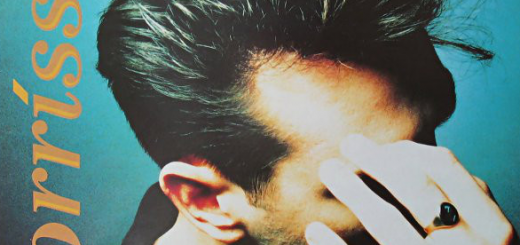First of the Gang to Die by Morrissey Lyrics Meaning – Unveiling the Poetic Lament of Urban Tragedy
Lyrics
You have never been in love
Until you have seen the stars reflect in the reservoirs
And you have never been in love
Until you have seen the dawn rise
Behind the home for the blind
We are the pretty, petty thieves
And you’re standing on our streets
Where Hector was the
First of the gang with a gun in his hand
And the first to do time
The first of the gang to die, oh my
Hector was the first of the gang with a gun in his hand
And the first to do time
The first of the gang to die, oh my
You have never been in love
Until you’ve seen the sunlight thrown
Over smashed human bone
We are the pretty, petty thieves
And you’re standing on our streets
Where Hector was the
First of the gang with a gun in his hand
And the first to do time
The first of the gang to die
Such a silly boy
Hector was the first of the gang with a gun in his hand
And the bullet in his gullet and the first lost lad to go under the sod
And he stole from the rich and the poor
And the not very rich and the very poor
And he stole all hearts away
He stole all hearts away
He stole all hearts away
Away
He stole all hearts away
Away
He stole all hearts away
Away
He stole all hearts away
Away
He stole all hearts away
Away
He stole all hearts away
Away
In the emotive fabric of pop music, few can weave threads as vibrant and sorrow-stained as Morrissey. His song ‘First of the Gang to Die’ emerges not merely as a composition, but as a narrative steeped in the cultural heartbeats of Los Angeles’s underbelly.
More than a melody, the song is a canvas, painting a story of love, life, and loss in the stark light of urban struggle. It’s a lamentation, draped in the seductive charm of Morrissey’s vocal prowess, that meticulously stitches together a tale of a tragic anti-hero, Hector.
The Star-Crossed Lovers of L.A.’s Reservoirs
Love, as Morrissey envisions, is not a mere exchange of hearts but an experience closely tied with the night’s celestial beauty and the macabre reality of the streets. The lyrical journey of ‘First of the Gang to Die’ embarks from the undercurrents of affection, an affection that’s perhaps as desperate as the home for the blind awaiting dawn’s first light.
Through these verses, Morrissey juxtaposes the romantic idealism of stargazing lovers with the gritty truth of their environment, a powerful reminder that love—the kind that makes you truly feel alive—is forged and tempered in the fires of adversity.
Hector: The Anti-Hero in a Gunmetal Cloak
The name Hector, booming through the song’s chorus, becomes a call to arms and a eulogy simultaneously. This central figure with ‘a gun in his hand’ and the ‘bullet in his gullet’ is the embodiment of the struggle against a system designed for the fall of the likes of him.
His narrative is outlined in the sharp contrast of his actions and consequences—he is at once a symbol of rebellion and a casualty of his environment, the reality of which shatters the romanticism that Morrissey starts with.
A Ballad of Blood and Bone Under Sunlight
The song’s aesthetics of violence—’sunlight thrown / Over smashed human bone’—serves not just as vivid imagery, but as a visceral container for the theme of harsh realizations. These lines force listeners to reckon with the beauty falling shortly beside the brutality of street life.
Morrissey isn’t shy to explore the stark dichotomy of life and death, and ‘First of the Gang to Die’ invites its audience to face it head-on—a poetic confrontation that’s as much visual as it is aural.
Unraveling the Heart of the Underdog
The pathos of Hector’s tale lies not just in his premature end, but also in the Robin Hood-esque imagery of his existence. He ‘stole from the rich and the poor’ not out of malicious intent, but as an act of survival and assertion of his being within a world that continually marginalized him.
The repeated refrain—’He stole all hearts away’—elevates Hector from a mere gang member to a charismatic leader who commands not just the loyalty but the love of his peers. Through these lines, Morrissey blends romanticism with revolt, a potent mix that’s emblematic of his lyrical prowess.
Echoing Choruses and the Immortalized Refrain
In the relentless repetition of ‘He stole all hearts away,’ there’s a hypnotic quality that cements the song’s place as a modern-day anthem. It’s a lyrical motif that transcends its subject, illustrating how legends are built—one tale, one chorus at a time.
Morrissey taps into the collective unconscious, laying bare the longing for heroes and the immortality of their tales, even among the most tragic narratives—a notion that is deeply ingrained in our shared human experience and showcased profoundly within the song’s cathartic crescendos.








